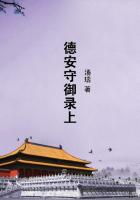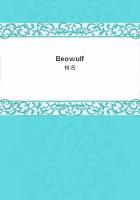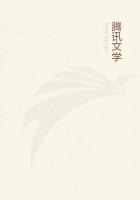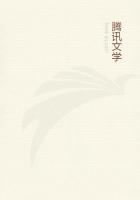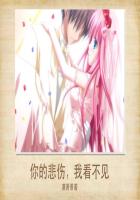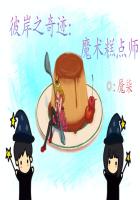To the teaching of Simson the historians of the Church of Scotland are accustomed to trace the introduction of the " New Light " theology into the pulpits both of Scotland and Ulster.But there were other and deeper causes also at work, producing simultaneously very much the same results all over the Protestant Continent of Europe, and in England both in the Church and among Non-conformists.It was a period of growing liberality of opinion, according to the view of the rising literary men of the country.It was a time of doctrinal deterioration, followed rapidly by a declension of living piety, and in the age after of a high morality, according to the view of the great body of earnest Christians.In the preceding age, Milton, Newton, and Locke had abandoned the belief in the divinity of Christ, and the great Church of England divine of that age, Samuel Clarke, was defending the Arian creed, and setting aside the Reformation doctrine of grace.Francis Hutcheson, by this time a preacher, writes from Ireland to a friend in Scot land, in 1718, Of the younger ministers in Ulster: "I find by the conversation I have had with some ministers and comrades, that there is a perfect Hoadley mania among our younger ministers in the north; and, what is really ridiculous, it does not serve them to be of his opinions, but their pulpits are ringing with them, as if their hearers were all absolute princes going to impose tests and confessions in their several territories, and not a set of people entirely excluded from the smallest hand in the government anywhere, and entirely incapable of bearing any other part in the prosecution but as sufferers.I have reason however, to apprehend that the antipathy to confessions is upon other grounds than a new spirit of charity.Dr.Clarke's work (on the Trinity), I'm sufficiently informed, has made several {53} unfixed in their old principles, if not entirely altered them."Hutcheson never utters any more certain sound than this on the religious controversies of his day.It is evident that his mind is all along more inclined towards ethical philosophy and natural theology.It is interesting to notice that, in 1717, he wrote a letter to S.Clarke stating objections to his famous " Demonstration of the Being and Attributes of God," and that he received a reply, both of which are lost.We are reminded that, about four years before this, Joseph Butler, then a youth of twenty-one, at a dissenting academy, had written Clarke, taking exception to certain points in his "Demonstration," and had received answers to his letters.The objections of Hutcheson must have been more fundamental as to method than those of Butler.He was convinced that, as some subjects from their nature are capable of demonstration, so others admit only of probable proof, and he had great doubts of the validity of all metaphysical arguments in behalf of the existence of Deity.Dr.Leechman tells us: "This opinion of the various degrees of evidence adapted to various subjects first led Dr.Hutcheson to treat morals as a matter of fact, and not as founded on the abstract relation of things."During his student life he was tutor for a time to the Earl of Kilmarnock.Leaving college about 1716, he was licensed to preach the gospel by the Presbyterian Church in Ireland.His preaching does not seem to have been acceptable to the people, who were alarmed at the New Light doctrine which was creeping in among them, and felt that the young preacher's discourses were scarcely in the spirit of the Scriptures, as they were not after the model of the ministers and divines whom they reverenced. However, he received a call from a country {54} congregation at Magherally, in his native county, but was easily persuaded to accept instead an invitation to open an academy in Dublin, to give instruction in the higher branches.About the time he settled there the Protestant Non-conformists, aided by the government, but after a keen opposition from the Irish bishops, had succeeded in obtaining a parliamentary repeal of the Acts which required all persons to resort to their parish church every Sunday, and imposed a fine of L100 upon the dissenting minister who officiated in any congregation.But the young teacher had to suffer two prosecutions in the Archbishop's court for daring to teach youth without subscribing the canons and obtaining a license.These attacks upon him came to nothing, as they were discouraged by the Archbishop.Dr.King, author of the metaphysical work on the " Origin of Evil," who, though he had been a determined opponent of the relaxation allowed by law to dissenters, was unwilling to oppress so accomplished a man and well-disposed a citizen as Hutcheson.In Dublin he had laborious duties to discharge, which left him, he complained, little time for literature and mental culture;but he seems to have met with congenial society.The Presbyterians and Independents were the representatives of the English Non-conformists, who had been a considerable body there when Henry Cromwell was vice-regent, and when Winter and Charnock preached to them in Christ's Church Cathedral; and they had among them families of standing and influence.His literary accomplishments opened other circles to him.There seems to have been at that time a considerable taste for learning and philosophy in the metropolis of Ireland.From a very early date after its publication, the "Essay on the Human {55} Understanding," had been most enthusiastically welcomed by Molyneux, who corresponded with Locke, and expressed his excessive admiration of him.
同类推荐
热门推荐
希区柯克悬念惊悚故事集
精心选编了希区柯克最具代表性的111部作品,按其类型分为“连环布局”“头脑较量”“杀机惊魂”“出人意料”“钩心斗角”“幽冥来袭”六个板块,每一部分都充满了希区柯克特有的惊悚、紧张、刺激、悬疑和恐怖的色彩,将带给读者最精彩的阅读享受。星屑之吻
她是一个爱吃的糕点师,她告诉自己,像饕餮那样,吃掉自己的记忆,那就不会痛苦了;她是一个失去戒备心的杀手,她告诉自己,像常人那样,丢掉自己的警惕,那就可以自由了。无奈却被自己最信任的两人联手抹除。因一块骨玉而穿越成最受世人鄙视的废材,是不是废材,那还得试试看呢!炼药师算什么?看姐…咦?做出各种改良的配方练出来的竟然是…蛋糕?还有神奇功效?可是吃太多甜食对牙不好……身边总有两只萌正太相伴——一个话唠,一个傲娇。可谁又知道这不是他们的真面目?再来一只无耻王爷,一只奸商小公举,一个爱吃冰糖葫芦的萌少爷,一个修长型面瘫男,一只爱吃醋的小菜花,一个冷酷的小杨桃,还有各种法宝伴你行~小伙伴们,咱们打怪去哟!

